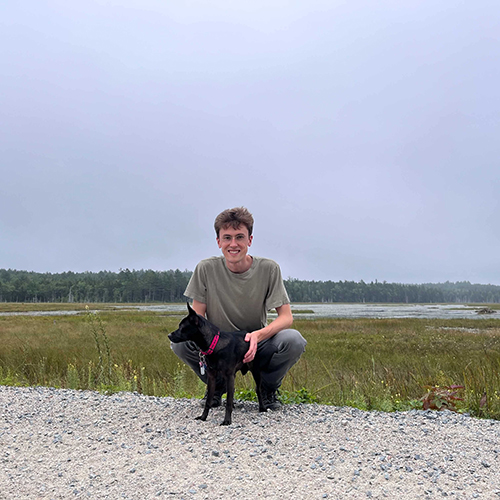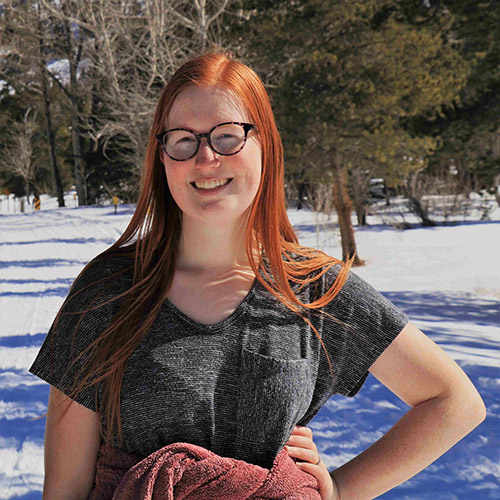MegaAttitude
The MegaAttitude Project addresses how humans draw complex inferences from the thousands of English predicates that combine with subordinate clauses – “think”, “know”, “say”, “tell”, “remember”, “forget”, etc. – when the structural characteristics of the clauses they combine with vary. For example, the sentence “John forgot that he bought milk” is similar to the sentence “John forgot to buy milk”; but from the first sentence, a listener infers that John bought milk, while from the second, a listener infers that he didn’t. This inference pattern is only one among many such patterns in English; yet, in spite of this variety, there appears to be substantial regularities across predicates and subordinate clause structures that prior work has only scratched the surface of. Investigating the systematicities in how humans compute these inference patterns sheds light on how the human cognitive system constructs complex meanings from simpler parts and supports the development of intelligent computational systems for comprehending and reasoning about natural language in human-like ways.
The current project approaches this investigation in two parts. First, it develops and deploys multiple scalable, crowd-sourced annotation protocols, based on experimental methodologies from psycholinguistics, in order to collect data about a wide variety of inference patterns triggered by all of the thousands of English predicates that combine with subordinate clauses. Second, it leverages recent advances in multi-task machine learning to build a unified computational model of the relationship between such predicates, the structure of their subordinate clauses, and the inferences that they trigger, which is trained on these data. This model not only helps to reveal systematicities in how humans compute the inference patterns of interest; it can also be straightforwardly incorporated into applied technologies for natural language understanding.
MegaAttitude is supported by a National Science Foundation collaborative grant (BCS-1748969/BCS-1749025).

Papers
- Kane, Benjamin, Will Gantt & Aaron Steven White. 2022. Intensional Gaps: Relating veridicality, factivity, doxasticity, bouleticity, and neg-raising. Semantics and Linguistic Theory 31. 570–605.
@article{kane_intensional_2022,
title = {Intensional {Gaps}: {Relating} veridicality, factivity, doxasticity, bouleticity, and neg-raising},
volume = {31},
copyright = {Copyright (c) 2022 Benjamin Kane, Will Gantt, Aaron Steven White},
issn = {2163-5951},
shorttitle = {Intensional {Gaps}},
url = {https://journals.linguisticsociety.org/proceedings/index.php/SALT/article/view/31.029},
doi = {10.3765/salt.v31i0.5137},
abstract = {We investigate which patterns of lexically triggered doxastic, bouletic, neg(ation)-raising, and veridicality inferences are (un)attested across clause-embedding verbs in English. To carry out this investigation, we use a multiview mixed effects mixture model to discover the inference patterns captured in three lexicon-scale inference judgment datasets: two existing datasets, MegaVeridicality and MegaNegRaising, which capture veridicality and neg-raising inferences across a wide swath of the English clause-embedding lexicon, and a new dataset, MegaIntensionality, which similarly captures doxastic and bouletic inferences. We focus in particular on inference patterns that are correlated with morphosyntactic distribution, as determined by how well those patterns predict the acceptability judgments in the MegaAcceptability dataset. We find that there are 15 such patterns attested. Similarities among these patterns suggest the possibility of underlying lexical semantic components that give rise to them. We use principal component analysis to discover these components and suggest generalizations that can be derived from them.},
language = {en},
urldate = {2022-01-13},
journal = {Semantics and Linguistic Theory},
author = {Kane, Benjamin and Gantt, Will and White, Aaron Steven},
month = jan,
year = {2022},
pages = {570--605},
}- White, Aaron Steven. 2021. On believing and hoping whether. Semantics and Pragmatics 14(6). 1–18.
@article{white_believing_2021,
title = {On believing and hoping whether},
volume = {14},
issn = {1937-8912},
url = {https://semprag.org/index.php/sp/article/view/sp.14.6},
doi = {10.3765/sp.14.6},
abstract = {Theories of clause selection that aim to explain the distribution of interrogative and declarative complement clauses often take as a starting point that predicates like think, believe, hope, and fear are incompatible with interrogative complements. After discussing experimental evidence against the generalizations on which these theories rest, I give corpus evidence that even the core data are faulty: think, believe, hope, and fear are in fact compatible with interrogative complements, suggesting that any theory predicting that they should not be must be jettisoned.},
language = {en},
number = {6},
journal = {Semantics and Pragmatics},
author = {White, Aaron Steven},
month = jun,
year = {2021},
keywords = {clause embedding, interrogative, neg-raising, preferential, selection, veridical},
pages = {1--18},
}- Kim, Gene Louis & Aaron Steven White. 2021. Montague Grammar Induction. Semantics and Linguistic Theory 30. 227–251.
- White, Aaron Steven & Kyle Rawlins. 2020. Frequency, acceptability, and selection: A case study of clause-embedding. Glossa: a journal of general linguistics 5(1). 105.
@article{white_frequency_2020,
title = {Frequency, acceptability, and selection: {A} case study of clause-embedding},
volume = {5},
copyright = {Authors who publish with this journal agree to the following terms: Authors retain copyright and grant the journal right of first publication with the work simultaneously licensed under a Creative Commons Attribution License that allows others to share the work with an acknowledgement of the work's authorship and initial publication in this journal. Authors are able to enter into separate, additional contractual arrangements for the non-exclusive distribution of the journal's published version of the work (e.g., post it to an institutional repository or publish it in a book), with an acknowledgement of its initial publication in this journal. Authors are permitted and encouraged to post their work online (e.g., in institutional repositories or on their website) prior to and during the submission process, as it can lead to productive exchanges, as well as earlier and greater citation of published work (See The Effect of Open Access ). All third-party images reproduced on this journal are shared under Educational Fair Use. For more information on Educational Fair Use , please see this useful checklist prepared by Columbia University Libraries . All copyright of third-party content posted here for research purposes belongs to its original owners. Unless otherwise stated all references to characters and comic art presented on this journal are ©, ® or ™ of their respective owners. No challenge to any owner’s rights is intended or should be inferred.},
issn = {2397-1835},
shorttitle = {Frequency, acceptability, and selection},
url = {http://www.glossa-journal.org//article/10.5334/gjgl.1001/},
doi = {10.5334/gjgl.1001},
abstract = {Article: Frequency, acceptability, and selection: A case study of clause-embedding},
language = {en},
number = {1},
urldate = {2020-11-04},
journal = {Glossa: a journal of general linguistics},
author = {White, Aaron Steven and Rawlins, Kyle},
month = nov,
year = {2020},
note = {Number: 1
Publisher: Ubiquity Press},
pages = {105},
file = {Full Text PDF:/home/aaronsteven/snap/zotero-snap/common/Zotero/storage/MNKR3NNA/White and Rawlins - 2020 - Frequency, acceptability, and selection A case st.pdf:application/pdf;Snapshot:/home/aaronsteven/snap/zotero-snap/common/Zotero/storage/Q4S2JYBW/gjgl.1001.html:text/html}
}- Gantt, William, Benjamin Kane & Aaron Steven White. 2020. Natural Language Inference with Mixed Effects. In Proceedings of the Ninth Joint Conference on Lexical and Computational Semantics, 81–87. Barcelona, Spain (Online): Association for Computational Linguistics.
@inproceedings{gantt_natural_2020,
title = {Natural Language Inference with Mixed Effects},
author = {Gantt, William and
Kane, Benjamin and
White, Aaron Steven},
booktitle = {Proceedings of the Ninth Joint Conference on Lexical and Computational Semantics},
month = dec,
year = {2020},
address = {Barcelona, Spain (Online)},
publisher = {Association for Computational Linguistics},
url = {https://www.aclweb.org/anthology/2020.starsem-1.9},
pages = {81--87}
}- An, Hannah & Aaron White. 2020. The lexical and grammatical sources of neg-raising inferences. Proceedings of the Society for Computation in Linguistics 3(1). 220–233.
@article{an_lexical_2020,
title = {The lexical and grammatical sources of neg-raising inferences},
volume = {3},
url = {https://scholarworks.umass.edu/scil/vol3/iss1/23},
doi = {https://doi.org/10.7275/yts0-q989},
number = {1},
journal = {Proceedings of the Society for Computation in Linguistics},
author = {An, Hannah and White, Aaron},
month = jan,
year = {2020},
pages = {220--233}
}- Moon, Ellise & Aaron Steven White. 2020. The source of nonfinite temporal interpretation. In Mariam Asatryan, Yixiao Song & Ayana Whitmal (eds.), Proceedings of the 50th Annual Meeting of the North East Linguistic Society, vol. 3, 11–24. Amherst, MA: GLSA Publications.
@inproceedings{moon_source_2020,
address = {Amherst, MA},
title = {The source of nonfinite temporal interpretation},
volume = {3},
booktitle = {Proceedings of the 50th {Annual} {Meeting} of the {North} {East} {Linguistic} {Society}},
publisher = {GLSA Publications},
author = {Moon, Ellise and White, Aaron Steven},
editor = {Mariam Asatryan and Yixiao Song and Ayana Whitmal},
year = {2020},
pages = {11--24}
}- White, Aaron Steven. 2019. Lexically triggered veridicality inferences. In Handbook of Pragmatics, vol. 22, 115–148. John Benjamins Publishing Company.
@incollection{white_lexically_2019,
title = {Lexically triggered veridicality inferences},
volume = {22},
url = {https://doi.org/10.1075/hop.22.lex4},
booktitle = {Handbook of {Pragmatics}},
publisher = {John Benjamins Publishing Company},
author = {White, Aaron Steven},
year = {2019},
pages = {115--148}
}- White, Aaron Steven, Rachel Rudinger, Kyle Rawlins & Benjamin Van Durme. 2018. Lexicosyntactic Inference in Neural Models. In Proceedings of the 2018 Conference on Empirical Methods in Natural Language Processing, 4717–4724. Brussels, Belgium: Association for Computational Linguistics.
@inproceedings{white_lexicosyntactic_2018,
address = {Brussels, Belgium},
title = {Lexicosyntactic {Inference} in {Neural} {Models}},
url = {https://www.aclweb.org/anthology/D18-1501},
doi = {10.18653/v1/D18-1501},
abstract = {We investigate neural models' ability to capture lexicosyntactic inferences: inferences triggered by the interaction of lexical and syntactic information. We take the task of event factuality prediction as a case study and build a factuality judgment dataset for all English clause-embedding verbs in various syntactic contexts. We use this dataset, which we make publicly available, to probe the behavior of current state-of-the-art neural systems, showing that these systems make certain systematic errors that are clearly visible through the lens of factuality prediction.},
booktitle = {Proceedings of the 2018 {Conference} on {Empirical} {Methods} in {Natural} {Language} {Processing}},
publisher = {Association for Computational Linguistics},
author = {White, Aaron Steven and Rudinger, Rachel and Rawlins, Kyle and Van Durme, Benjamin},
month = oct,
year = {2018},
pages = {4717--4724}
}- White, Aaron Steven & Kyle Rawlins. 2018. The role of veridicality and factivity in clause selection. In Sherry Hucklebridge & Max Nelson (eds.), Proceedings of the 48th Annual Meeting of the North East Linguistic Society, 221–234. Amherst, MA: GLSA Publications.
@inproceedings{white_role_2018,
address = {Amherst, MA},
title = {The role of veridicality and factivity in clause selection},
booktitle = {Proceedings of the 48th {Annual} {Meeting} of the {North} {East} {Linguistic} {Society}},
publisher = {GLSA Publications},
author = {White, Aaron Steven and Rawlins, Kyle},
editor = {Hucklebridge, Sherry and Nelson, Max},
year = {2018},
pages = {221--234}
}- White, Aaron Steven & Kyle Rawlins. 2016. A computational model of S-selection. (Ed. by) Mary Moroney, Carol-Rose Little, Jacob Collard & Dan Burgdorf. Semantics and Linguistic Theory 26. 641–663.
@article{white_computational_2016,
title = {A computational model of {S}-selection},
volume = {26},
issn = {2163-5951},
url = {https://journals.linguisticsociety.org/proceedings/index.php/SALT/article/view/26.641},
doi = {10.3765/salt.v26i0.3819},
abstract = {We develop a probabilistic model of S(emantic)-selection that encodes both the notion of systematic mappings from semantic type signature to syntactic distribution—i.e., projection rules—and the notion of selectional noise—e.g., C(ategory)-selection, L(exical)-selection, and/or other independent syntactic processes. We train this model on data from a large-scale judgment study assessing the acceptability of 1,000 English clause-taking verbs in 50 distinct syntactic frames, finding that this model infers coherent semantic type signatures. We focus in on type signatures relevant to interrogative and declarative selection, arguing that our results suggest a principled split between cognitive verbs, which select distinct proposition and question types, and communicative verbs, which select a single hybrid type.},
language = {en},
urldate = {2020-08-24},
journal = {Semantics and Linguistic Theory},
author = {White, Aaron Steven and Rawlins, Kyle},
editor = {Mary Moroney and Carol-Rose Little and Jacob Collard and Dan Burgdorf},
month = oct,
year = {2016},
note = {Number: 0},
pages = {641--663},
file = {Full Text PDF:/home/aaronsteven/snap/zotero-snap/common/Zotero/storage/HGQIL3Y2/White and Rawlins - 2016 - A computational model of S-selection.pdf:application/pdf;Snapshot:/home/aaronsteven/snap/zotero-snap/common/Zotero/storage/H4KVLSH9/26.html:text/html}
}







